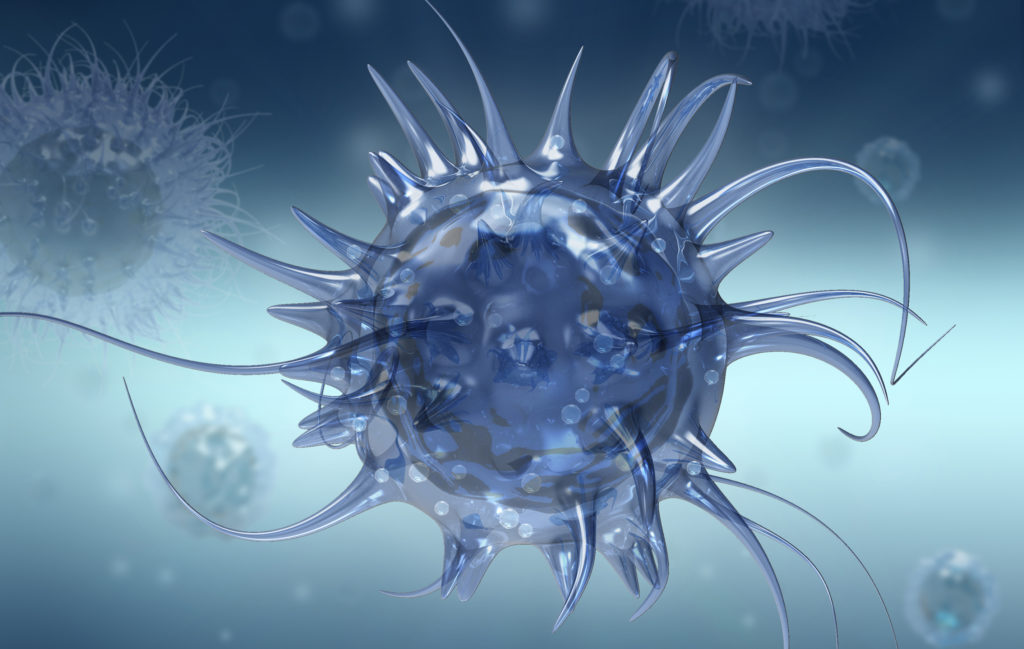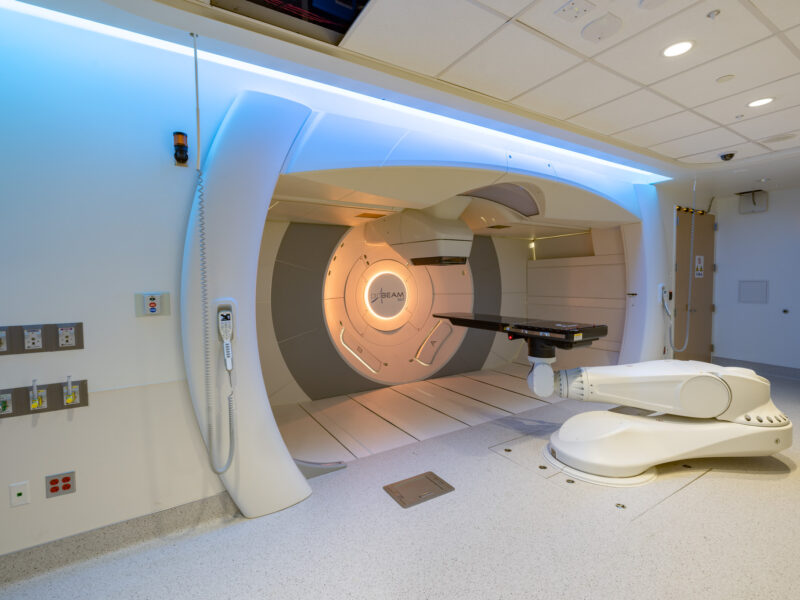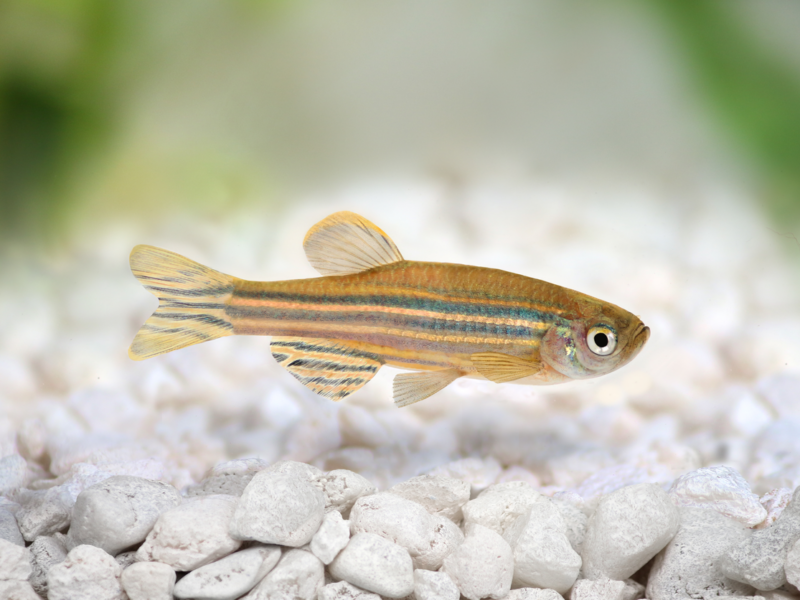Investigators Develop Technique to Effectively Edit NK Cells to Target Specific Cancer Cells
Investigators Develop Technique to Effectively Edit NK Cells to Target Specific Cancer Cells https://pediatricsnationwide.org/wp-content/uploads/2022/04/NK-Cell-Cover-Art-web-crop-1024x649.jpg 1024 649 Katie Brind'Amour, PhD, MS, CHES Katie Brind'Amour, PhD, MS, CHES https://pediatricsnationwide.org/wp-content/uploads/2021/03/Katie-B-portrait.gif- July 11, 2022
- Katie Brind'Amour, PhD, MS, CHES

The third of three major challenges in enabling the clinical potential of NK cells for cancer therapy has just been addressed, thanks to the combined talents of gene editing experts and NK cell specialists at Nationwide Children’s Hospital.
Originally, NK cells seemed promising for a natural therapy to fight cancer due to their innate ability to recognize any cells expressing stress or signs of infection. But investigators quickly realized they faced three key challenges: first, it was difficult to grow a large enough number of NK cells in the lab to offer useful infusions at a reasonable cost; second, an ideal universal donor solution was needed to make NK cell products faster, more reliably and with off-the-shelf availability; and third, NK cells were resistant to genetic modifications that might help them better target specific types of cancer cells. Nationwide Children’s Hospital investigators and their collaborators painstakingly solved the first two problems over the past decade. Now, they’ve conquered the third.
Editing NK cells with a chimeric antigen receptor, making them CAR-NK cells, enables them to target specific cancer cells. The research, led by Dean Lee, MD, PhD, director of the Cellular Therapy and Cancer Immunology Program at Nationwide Children’s and The Ohio State University Comprehensive Cancer Center, and Meisam Naeimi Kararoudi, DVM, PhD, director of the CRISPR/Gene Editing Core and a principal investigator in the Center for Childhood Cancer and Blood Diseases at Nationwide Children’s, found that adeno-associated viral (AAV) vectors coupled with a gene editing technology called CRISPR enables effective NK cell editing for subsequent enhanced efficacy against acute myelogenous leukemia (AML) cells.
“For a long time, we did not have a good way of generating stable, highly efficient chimeric antigen receptors that can recognize cancer cells in a more specific way, even though we tried many different vectors to introduce genetic material into NK cells for expression,” says Dr. Kararoudi. “I started to wonder what was causing that problem. As it turns out, NK cells don’t like lentiviruses much, which is what everyone was using. I looked into adeno-associated viruses [AAV] plus CRISPR, and the combination changed the entire game.”
The CRISPR and AAV method of gene editing results in a precise and highly controllable way to manipulate NK cell genetic expression, allowing researchers to knock a gene out and insert another at the same time, alter genes, increase expression of proteins or even add tags to the genome to allow better study of the biology of NK cells.
“These are things we haven’t been able to do with NK cells before,” says Dr. Lee, who has multiple clinical trials underway using his existing NK cell growth and universal donor techniques. “Prior gene editing techniques in NK cells were limited to either the addition or silencing of a gene. The AAV and CRISPR technique opens a whole new world of cell therapy research for us.”
The new approach, published in Cell Reports Methods, was optimized and validated using an AML-specific CAR, targeting CD33, which was inserted into human NK cells. The cells remained stable after gene editing, and they demonstrated improved anti-AML activity compared to unmodified NK cells. Even better, the method is easily adapted; Dr. Kararoudi has already swapped in CARs aimed at almost a dozen other cancer targets.
“From a clinical perspective, we’re making a real effort to put this brand-new way of making CAR-NK cells into a clinical trial, hopefully by mid-2023,” says Dr. Lee, who has already reached out to the FDA to address what data will be needed to get approval of the new technique for study in humans.
As with his current NK cell clinical studies, the plan will be to add the new CAR-NK cell therapy to existing chemotherapy protocols to enhance treatment efficacy.
“The sky is the limit now,” says Dr. Kararoudi, who has already worked with more than 60 investigators to develop gene editing techniques for their diseases or molecules of interest. He believes the CRISPR and AAV technique can open the door to a wide range of CAR-NK cell therapies as well as major advances in the understanding of NK cell biology. “Really this was a good example of how our cell therapy, gene therapy and CRISPR teams can work together to introduce a novel therapy option for patients, and we intend to keep working together to help people.”
Reference:
Naeimi Kararoudi M, Likhite S, Elmas E, Yamamoto K, Schwartz M, Sorathia K, Pereira MDSF, Sezgin Y, Devine RD, Lyberger JM, Behbehani GK, Chakravarti N, Moriarity BS, Meyer K, Lee DA. Optimization and validation of CAR transduction into human primary NK cells using CRISPR and AAV. Cell Reports Methods 2;100236. 20 June 2022. ePub ahead of print.
Image credit: Mandy Root-Thompson, for Nationwide Children’s Hospital
About the author
Katherine (Katie) Brind’Amour is a freelance medical and health science writer based in Pennsylvania. She has written about nearly every therapeutic area for patients, doctors and the general public. Dr. Brind’Amour specializes in health literacy and patient education. She completed her BS and MS degrees in Biology at Arizona State University and her PhD in Health Services Management and Policy at The Ohio State University. She is a Certified Health Education Specialist and is interested in health promotion via health programs and the communication of medical information.
-
Katie Brind'Amour, PhD, MS, CHEShttps://pediatricsnationwide.org/author/katie-brindamour-phd-ms-ches/April 27, 2014
-
Katie Brind'Amour, PhD, MS, CHEShttps://pediatricsnationwide.org/author/katie-brindamour-phd-ms-ches/April 27, 2014
-
Katie Brind'Amour, PhD, MS, CHEShttps://pediatricsnationwide.org/author/katie-brindamour-phd-ms-ches/April 27, 2014
-
Katie Brind'Amour, PhD, MS, CHEShttps://pediatricsnationwide.org/author/katie-brindamour-phd-ms-ches/April 28, 2014







